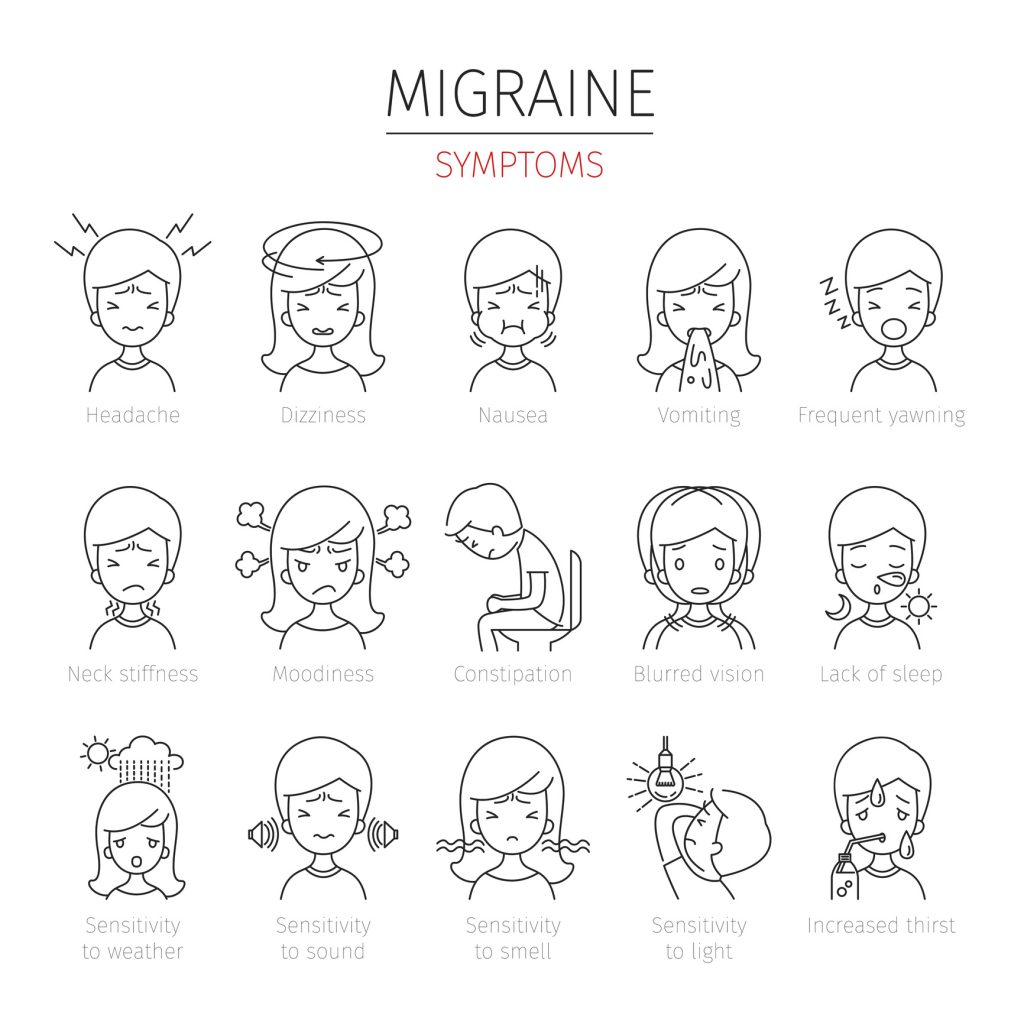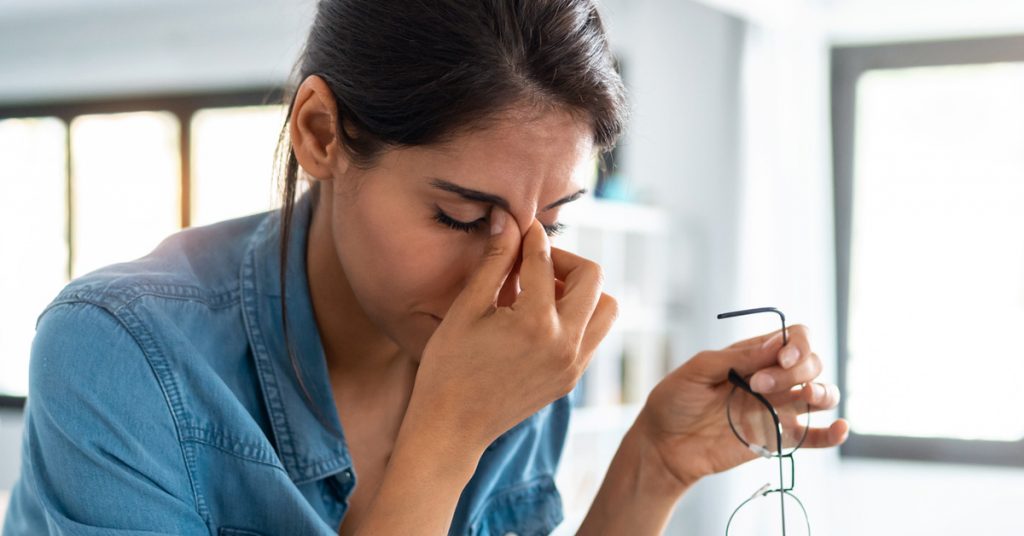There are many misconceptions about migraines. Migraines are not just painful headaches; they can be excruciating. There can be pain on one or both sides of the head, intense throbbing, and sometimes symptoms including nausea, light and sound sensitivity, and blurred vision. Unlike a typical headache, a migraine can last not just for hours, but for days.
Migraines are often debilitating and disabling. In fact, the screening test for migraines includes an assessment of lost productivity—missed school or work, missed time with friends and family, missed social events, and impact on the ability to do daily tasks.
Facts about migraines
- About thirty million Americans suffer from migraine headaches.
- Migraines are three times more common in women than in men.
- More than half of migraine sufferers experience one or more attacks per month
- 10 percent of school-aged children suffer from migraines.
- $13 billion in lost labor and 113 million lost workdays each year are due to headaches and migraines
Migraine triggers
For many individuals with migraines, certain foods, odors, lighting, changes in the weather – or other environmental conditions – can bring on a migraine. For others, triggers include hormonal changes, stress, and sleep patterns. Triggers differ for everyone, and they are not necessarily consistent, making prevention an often unreliable and frustrating endeavor.

What does this have to do with allergies? While the exact method for how allergies can trigger migraines is not widely understood, there are some connections.
- Sinusitis
The most common cause of a margin is allergic sinusitis. When exposed to an allergen like dust, mold, pollen or dander, the sinuses can become inflamed. This swelling of the sinuses causes a change in pressure, which may impact nerves and lead to any number of migraine symptoms. - Seasonal allergies (allergic rhinitis)
Studies have found that those with seasonal allergies are more likely to suffer with migraines than those without seasonal allergies. - Food allergies
Certain foods are commonly associated with migraines such as chocolate or cheese. While there is some evidence that the occurrence of migraines can decline with diet modification, the clinical evidence in this area is lacking. - Histamine
Histamine is the chemical produced by the body in response to an allergy and may also play a role in triggering migraines by way of swelling and dilation of blood vessels.
What are my options?
- Focus on healthy living.
- Avoid stress
- Don’t strain your eyes
- Stay hydrated
- Eat a healthy diet
- Establish regular sleep patterns
- Adapt your lifestyle to minimize triggers
- Identify and avoid triggers.
Start with keeping a migraine journal to help identify triggers. Then, commit to making all appropriate lifestyle adaptations with a comprehensive plan to avoid common allergens. This may include high-efficiency HEPA air filters, mattress and pillow covers, gloves and masks for certain activities, and avoidance of things like smoke, heavily-scented products, and products with toxic chemicals such as cleaners, paint, and fingernail polish.
- Seek out proven allergy treatment options.
Treatment of any underlying nasal or sinus allergies can be useful. A long-term allergy treatment plan including proven methods such as immunotherapy is often recommended.
- Be nice to your sinuses.
Regular care for sinuses should include:
- Rinse the sinuses with a natural saltwater rinse or irrigation
- Consider nasal antihistamines and nasal steroids such as Benadryl to treat underlying allergic rhinitis to decrease swelling in the nose and sinuses.
- Try medications for pain and prevention.
For some, when these measures are not enough, medications may offer relief.
- Over-the-counter pain medications are a good place to start. Nonsteroidal anti-inflammatory drugs like ibuprofen and naproxen, used in combination with acetaminophen and caffeine (Excedrin Migraine, Advil Migraine, and Motrin Migraine Pain), are designed for migraines.
- Prescription medications for migraine relief work to narrow blood vessels and control chemicals that may lead to migraines. The family of medications called triptans includes Imitrex, Zomig, Relpax, and Axert.
If you suffer from migraines and haven’t explored underlying allergies or sinusitis, schedule an appointment with one of our physicians.

